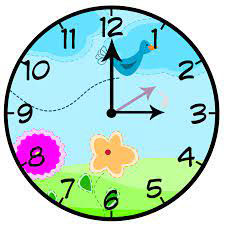“Spring Forward and Fall Back”: Let’s Talk about the Construction of Time Zones
Last Sunday my phone clock shifted from 2 am to 3 in a blink of an eye, but I must confess I didn’t change my wristwatch an hour forward until it was Monday night. Being a college student with assignment deadlines and readings, I couldn’t bear the idea of losing an hour even though it means I get to have more sunlight. Why can’t we just pick a side, forward or back, and stick with it? In fact, the conversation surrounding Daylight Savings Time (DST) and whether it’s worth it has been prompted by many. It is still now a heated conversation. While trying to figure out if I myself like DST, I stumbled on a new and intriguing idea introduced by my partner: what if, the world picks one time zone and sticks with it? This piece thus functions as a deconstruction zone where I invite you to use DST as a gateway into thinking about time as a construction and to contemplate the other options of timekeeping.
DST, simply put, is a practice of moving the clock one hour earlier in the Spring and back one hour in the Fall; with this, the sunrise and sunset are later in the day in the summer, allowing people to enjoy the natural light.
One of the key figures who advocated for DST was William Willett. He believed that changing the clock was easier than changing people’s behavior (Appelbaum for NYTimes); changing the clocks for him was a way to fight “regret[s] that the clear bright light of early morning during Spring and Summer months, is so seldom seen or used.” Willett also suggested that DST would also give people more opportunities to be outside and be with nature. DST could cap the use of artificial lighting and energy consumption. DST is, believe it or not, lowers robberies by 7%, according to a study by Doleac and Sanders. Well, I guess it is believable since it must be harder to conduct crime when it’s bright outside!
Holding onto all those pros, we enter the realm of the opponents of DST. They made their argument clear: DST is disruptive and infuriating. Plus, according to the skeptics, energy spent less in the summer will be offset by the energy spent in the winter months. The late sunrise in the winter would also be dangerous for children going to school and for the morning commute. And, this is a big one, the American Academy of Sleep Medicine opposed DST because it interrupts the human biological clock and potentially led to health problems such as cardiac arrest (Appelbaum).
So, I’m sold, but not all the way. I think we all are facing a crossroads of whether we should continue with this system that’s deemed unbeatable (yet). I think it was with this crossroad that I entered a conversation with my partner Maurice (Max) Berk-Wakeman to hear of the “One World Time” idea. Being very excited about the idea, he started off throwing shades on the way we (the world) construct time: “Back in the past, when we didn’t have high-speed internet, weren’t globally interconnected, and I couldn’t text my friend halfway around the world and he gets at the same moment that I had sent, time zones made sense” he said. “Now, we’re so connected, to the point that I’m feeling like we are living in the Middle Ages with these time zones. We are synced in every way, except for our time.” That was his premise for the One World Time, where all the clocks would be the same. “I would be eating dinner when my friend is eating breakfast, but both of our clocks would say the same time.”
Berk-Wakeman suggests that this change is a way to connect the original human biological preferences with the current interconnectivity. “I think that having many different time zones is messing us up,” he said. “If we shift to One World Time, we’re going to get closer to what our biology is tuned to do, which is to be timed with the rising and setting of the sun. We will also satisfy our modern society’s needs for coordination. This, is the perfect compromise.”
That conversation left me perplexed. I know time is a construct created by us – we change it according to our desires (PA just made DST permanent through passing a bill, moving it an hour later) – but I can’t bring myself to comprehend eating breakfast when the clock says 8 pm, even if the sun is just rising. I think the difficulty comes from fear of change (at least for me). One hour back and forth has caused this much calamity, I am very much dreading the chaos that would ensue if the world picks an arbitrary line in the Pacific to be the international dateline and to change their clocks accordingly to pursue the idea that Berk-Wakeman suggested. But out of the perplexity, it does open us to the idea of necessary chaos and the wide skyline of possibilities when it comes to man made creations such as time. If it’s a construct, it’s capable of being broken down and built anew. I know Berk-Wakeman is advocating for his One World Time idea, so, if you find last Sunday unbearable, know that there are other options for timekeeping out there, waiting to be picked up or to be created.



